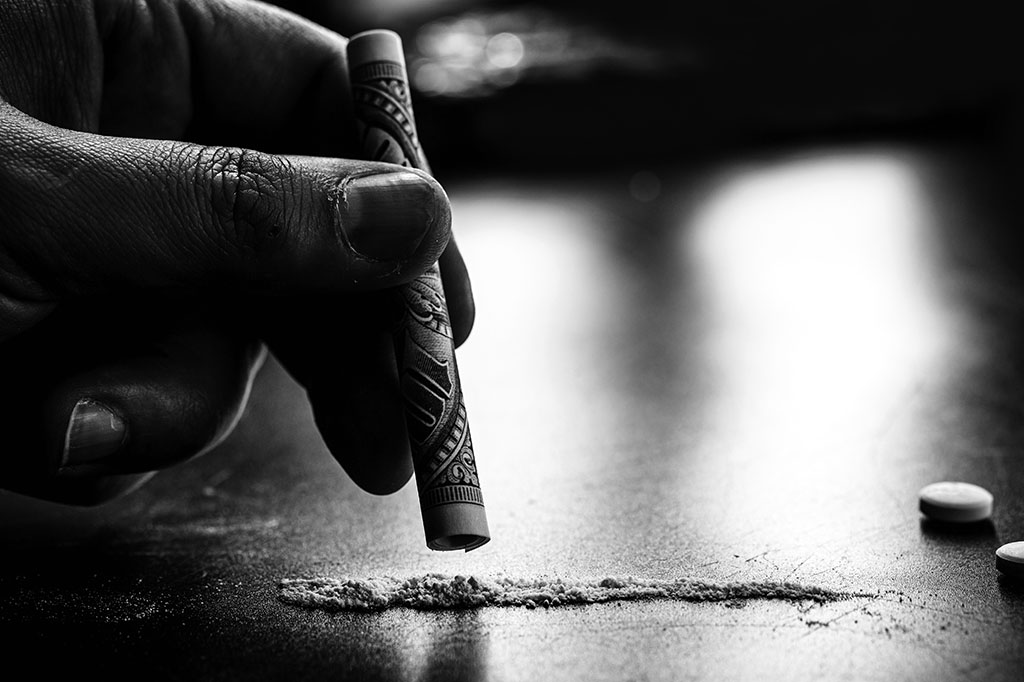Withdrawal From Hydrocodone
January 18, 2023
What Does the Bible Say About Enabling?
February 21, 2023Withdrawal From Hydrocodone
January 18, 2023
What Does the Bible Say About Enabling?
February 21, 2023
Can You Snort Hydrocodone?
Hydrocodone is an opioid that’s used in many prescription medications to treat cough and pain.
Otherwise referred to as a narcotic or painkiller, hydrocodone is available in formulations of pure hydrocodone (Hysingla, Zohydro) and in combination with other pain relievers like ibuprofen (Vicoprofen) or acetaminophen (Vicodin, Lortab, Norco). Like other opioids, hydrocodone attaches to mu-Opioid receptors to block pain signaling but also depresses the central nervous system, producing sedation and relaxation. Unfortunately, as one of the most commonly prescribed opioids on the market, hydrocodone is also one of the most abused drugs in the system. Abuse of this drug comes in many forms, which brings us to today’s question: can you snort hydrocodone?
Can You Sniff Hydrocodone?
People do snort hydrocodone mainly because snorting the drug causes a faster and more intense high in most situations. Any time a person changes how they administer a drug, the effects of the substance become modified. With many substances, especially opioids, there’s a direct relationship between the onset speed and the side effects strength.
Usually, drug side effects that are slower to develop tend to last longer but provide less of a euphoric high. On the other hand, effects with a faster onset – such as those achieved by snorting or injecting drugs – start off strong but usually last for a shorter period. The act of manipulating the administration of a drug to amplify its absorption or release in the body is known as “dose dumping.”
Dose dumping is a dangerous phenomenon associated with an increased risk of adverse drug effects, overdose, and death. So if you’re wondering whether you can snort hydrocodone, the answer is no. Unfortunately, this form of drug use still occurs despite the risks involved.
What Happens if You Snort Hydrocodone?
Some users may resort to snorting hydrocodone pills that have been crushed into a powder to experience a more intense high. Extended-release formulations of hydrocodone are usually the target because they contain larger amounts of the drug in single doses. However, extended-release (ER) formulations of substances are meant to be released into the body over time.
Therefore, when hydrocodone pills are crushed and snorted, it shoots a high concentration of the drug into the person’s system, leading to numerous adverse side effects. Common side effects of snorting hydrocodone include:
- Back pain
- Constipation
- Diminished appetite
- Drowsiness and/or problems sleeping
- Dry mouth and throat
- Feeling dizzy or lightheaded
- Headache
- Increased worry and anxiety
- Problems urinating
- Rapid mood changes
- Ringing in ears
- Shakiness
- Skin problems (itchiness, rash)
- Stomach pain
- Trouble thinking clearly
Depending on the dose and type of hydrocodone taken, more dangerous side effects of snorting hydro can occur, such as:
- Coma
- Frequent periods of loss of consciousness
- Lack of coordination or loss of motor control
- Nausea and uncontrollable vomiting
- New or worsening mental health symptoms like agitation, confusion, and hallucinations (auditory or visual)
- Slowed or inconsistent breathing patterns
Furthermore, many hydrocodone products also contain acetaminophen (Vicodin), which presents a risk for liver toxicity if large enough doses are consumed. Snorting hydrocodone products can also present problems specifically associated with nasal insufflation, including:
- Difficulty swallowing
- Ear pain
- Facial pain and swelling
- Frequent nosebleeds
- Nasal crusting
- Perforated nasal septum or palate—holes or tears in the nose and roof of the mouth
- Sinus congestion or running nose
- Tissue Necrosis, or severe tissue injury within the nasal cavity
While there’s a strong appeal for those seeking an intense high, the dangers of bypassing the extended-release mechanism are significant. As one of the primary risks of snorting hydrocodone, an overdose may easily result from the immediate release of the drug into the system.
Snorting Hydros & Overdose
Snorting painkillers like hydrocodone can result in an overdose, especially in cases of extended-release formulations. Any misuse of prescription opioids increases the risk of overdose, and opioid overdose has become a major concern in the U.S. since the beginning of the opioid epidemic.
In 2020, an average of 44 people died each day from overdoses involving prescription opioids like hydrocodone, totaling more than 16,000 deaths. Prescription opioids were involved in nearly 24% of all opioid overdose deaths in the same year, a 16% increase in prescription opioid-related deaths from 2019 to 2020.1 Hydrocodone/acetaminophen products, in particular, account for more than 1 out of every 7 overdoses.2
While an overdose is rarely a risk for people who take opioids as prescribed, the risk increases when people manipulate the substance in any way to get high. This includes:
- Changing the method of ingestion, such as crushing and then snorting the drug to heighten its effects
- Consuming the substance more often than recommended
- Taking prescription drugs belonging to someone else
- Taking more of their medication than recommended
- Using the substance to achieve a euphoric high or sense of relaxation
Just one large dose of hydrocodone can trigger an overdose, and mixing it with other substances like alcohol and benzodiazepines can further increase this risk. Unfortunately, combining opioids with other drugs to get high is a common practice among abusers.
Overdose is more likely to occur in individuals who are taking higher doses of hydrocodone to combat an increasing tolerance. As tolerance to a drug builds, the individual may require higher doses of the drug to experience the same effects. This also tends to coincide with hydrocodone withdrawal, which can be unpleasant if drug use is cut back or stopped suddenly.
People with a high tolerance to hydrocodone may, therefore, consume higher doses than normal to achieve a high. In doing so, however, they also increase the risk of overdose.
Common hydrocodone overdose symptoms include:
- Breathing problems marked by slowed, shallow, irregular, or stopped breathing
- Changes in pupil size or pupils unreactive to light stimuli
- Cold or blue skin, lips, or fingernails
- Extreme weakness, loss of coordination
- An irregular, slowed, or stopped heartbeat
- Loss of consciousness/coma
- Profound drowsiness or obtundation (mild to moderate alertness reduction)
- Uncontrollable vomiting
- Seizures
- Death
What are the Withdrawal Symptoms of Hydrocodone Addiction?
Individuals experiencing withdrawal from hydrocodone typically face a range of symptoms. These include feeling unusually restless and agitated, experiencing pain in the muscles and bones, suffering from insomnia, and encountering gastrointestinal issues such as diarrhea. Other common symptoms are experiencing cold flashes, having watery eyes and a runny nose, enduring muscle cramps, and visible goosebumps. Additionally, those withdrawing may notice a decrease in appetite along with nausea and vomiting, and observe changes in their respiratory and cardiac functions. Involuntary muscle twitches are also a frequently reported symptom during the withdrawal phase.
The abuse of prescription opioids in the U.S. is an epidemic that continues to claim lives and causes an array of harmful effects in many. To reduce the risk of experiencing the effects yourself or to prevent a loved one from going through addiction and/or overdose, consider seeking treatment.
Treatment Options for Someone Addicted to Hydrocodone
For individuals grappling with hydrocodone addiction, several treatment methods can be pursued to aid recovery. These include:
1. Detox: This initial stage of treatment is crucial for managing withdrawal symptoms safely under the supervision of healthcare professionals. Detox can either be medically assisted, where specific medications are administered to ease withdrawal symptoms and curb cravings, or it can be conducted in a social setting, which focuses on providing a supportive environment without the use of medication.
2. Pharmacotherapies: Throughout the recovery journey, certain medications are pivotal in minimizing withdrawal discomforts and preventing a relapse. Additionally, some drugs are designed to neutralize the effects of opioids, while others may address any accompanying mental health disorders, such as depression or anxiety, that can coexist with substance abuse.
3. Behavioral therapies: Post-detox, various therapeutic approaches are employed to alter destructive thought patterns, emotions, and behaviors associated with addiction. These therapies aim to resolve underlying issues that contribute to substance abuse and equip individuals with strategies to steer clear of future relapses. Depending on the individual’s needs, therapy might be provided in inpatient settings—with round-the-clock care—or outpatient settings—where patients attend treatment sessions but live at home.
These comprehensive treatment options offer a multi-pronged approach to tackle hydrocodone addiction effectively, catering to both the physical and psychological aspects of dependence.
Our Christian drug rehabilitation center offers residential addiction treatment for all kinds of substance use disorders to help clients overcome withdrawals and begin long-term care on a clean slate. Most clients who come to our facility start off treatment with medically assisted detox to become medically stable enough to focus on learning how to live a sober lifestyle when they go back home.
For more information about our Christ-centered addiction treatment and how we can support you or a loved one in achieving long-term sobriety, call Faith in Recovery today at 888-280-4763 or send us your contact information, and one of our admission specialists will reach out to you.
Sources:
- CDC - Prescription Opioid Overdose Death Maps
- Taylor & Francis Online - Routes of abuse of prescription opioid analgesics: a review and assessment of the potential impact of abuse-deterrent formulations
Related Reading:

